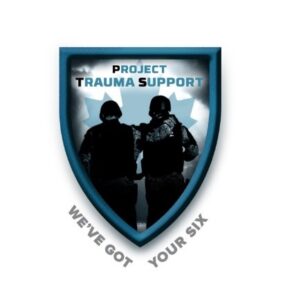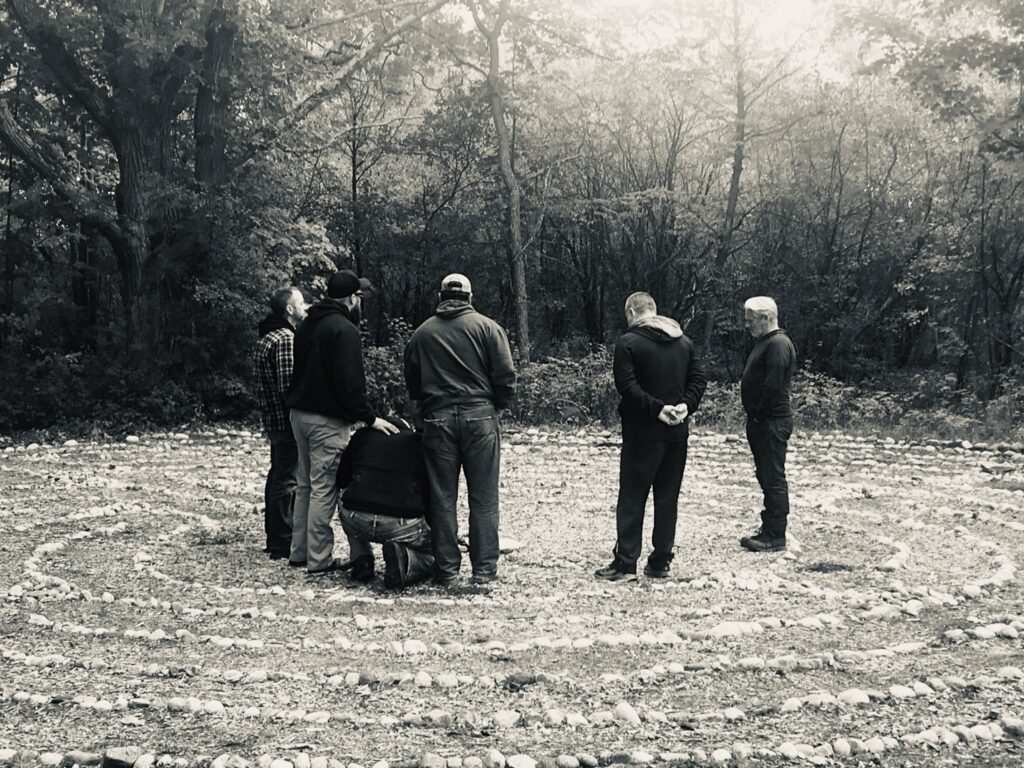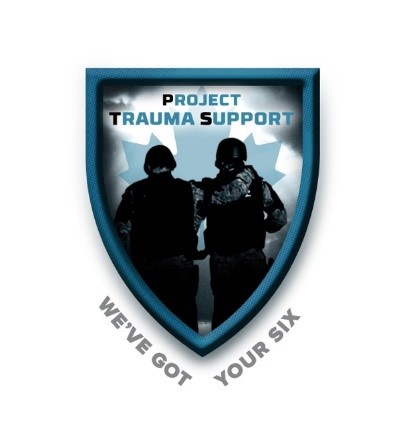 Resilient Leadership: What We Wish Leaders would Know
Resilient Leadership: What We Wish Leaders would Know
Manuela Joannou M.D. CCFP(EM)FCFP
Medical Director, Project Trauma Support
I was having a discussion with a dear, seasoned, and enlightened friend of mine and I was lamenting the state of the world today. There seems to be such division, anger and attack, outrage without investigation, scholarship, or the seeking of facts. Narratives and ideologies that seem to be ironically destroying the very things they purport to promote are taking over the institutions, organizations, and services we rely on for social stability and progress. Few people are willing to stand up and voice their dissent, or to use independent critical thinking to point out what is sometimes the obvious.
“Ah” but my friend replied. “You have to remember that it was at times like these in history that true leaders emerged”. He went on to refer to Winston Churchill and JFK. So that got me thinking…. Where are the leaders? Please come forth now.
For the past 9 years, I have been immersed in studying what has been referred to as “Post Traumatic Stress Disorder” (PTSD) in military members, veterans and first responders, and more recently, front line medical personnel as well. My greatest teachers have been those who were seeking help themselves, those who allowed us into the inner workings of their hearts, minds, and souls to see the impacts of what they had to see and do, and under what types of physical, physiological, and psychological conditions. Truth be told, this work has taken over my life, and I would not have it any other way.
This work has led me to believe that we are not accurately assessing the true scope of what is being lumped together as “Operational Stress Injuries”. Post Traumatic Stress Disorder (PTSD) is only a small part of the story. The symptoms of PTSD are simply the adaptive brain trying to protect against further threat or injury/death. Face it, our nature and evolution has programmed us to survive, at least long enough to ensure the existence of the next generation (hence the rationale for the meme of “Darwin Awards” to those whose unfortunate choices serve to take them out of the gene pool). A diagnosis of PTSD, the disorder, can only be made after a person has been exhibiting sufficiently distressing symptoms to affect their everyday lives for a period of at least 30 days. This is because anyone can suffer from post-traumatic stress. Most are able to process the stressful event, make peace with it, and more or less come back to their baseline level of functioning. Why do we let people fester in that first month without appropriate assistance in finding the right perspectives so that healing can happen quickly, and possibly even provide the opportunity to find new inner resources and perspectives that can lead to more resilience? In my humble opinion, we have gotten it all wrong. Waiting until a person qualifies for a diagnosis of PTSD may serve the insurance industry and dictate whether someone has a viable claim of injury but??? I hope you get my point. Much can be done immediately after a stressful event to help guide a person to healthy processing. A skilled clinician or leader/colleague can identify when someone is slipping into maladaptive thinking patterns that can lead to increased distress and help them to find better approaches.
Another dear friend and mentor of mine, a very wise, experienced, and scholarly psychiatrist has declared her belief that in ten years, PTSD will not even qualify as a psychiatric diagnosis.

We have become only too aware of the fact that it is often Moral Injury and not PTSD that causes the burden of suffering. Our pioneering work exploring moral injury and our novel option of treatment has contributed to a paucity of research in this area.
Much of the distress we have seen in the military members, first responders and veterans that reach out to us, comes from a specific form of moral injury, we now know as “sanctuary trauma”. The form of sanctuary trauma we see most often is when a conscientious, well meaning officer or soldier (could be physician, paramedic firefighter or any front line professional) has been involved in one or more serious incidents which caused great distress, and instead of receiving the support and understanding and even praise they deserve from their place of employment, they are instead met with hostility, reprimand, made an example of, or otherwise in effect “thrown under the bus”. This elicits strong feelings of injustice, betrayal, and anger, and can seriously erode the morale in the mind of the individual, as well as others within the organization.
In truth, sanctuary trauma can come from any person or place that one would normally go to in seeking comfort, solace, and the assurance of their well-being. Families of origin often commit the first sanctuary trauma. Then so can schools, clubs, committees, teams, insurance companies, medical and mental health professionals, bosses, leaders, and command staff. As our society seems to be moving toward increased generalized division and animosity, we look to our leaders, especially our politicians, who in a democratic society are given the responsibility of the final say, to provide our “sanctuary”.
In the case of military and law enforcement, it is not too difficult to find examples of how their respect and authority has been eroded in today’s society. It is getting to where the oath to “serve and protect” means to put oneself in harm’s way for an increasingly hostile, unappreciative, uninformed public. This is being reflected in worrisome difficulties in recruitment and retention in both the military and policing organizations, and who can blame someone for not wanting to sign up for this? I was speaking with another friend who has my utmost respect, who himself is a seasoned law enforcement officer who went on in his career to become a sought after professional mental health expert. His view is that our entire system is heading for collapse, and this might be necessary, as some things are just too broken to be fixed.
So where are the leaders we so desperately need to help lead us out of the current social quagmire? It will take some very unique individuals who are truly resilient, wise and have very thick skin. I do know of some people like this, but most of them are not sure they have the stomach for this any longer. Those with true leadership potential who have their hearts in the right place need all the support and backing we can give them.
In our work, we have defined the characteristics of resilient people. I now propose we discuss these characteristics as they apply to effective leaders who can implement much needed change. Here is my advice to leaders, and a list of “Things I Wish Leaders Would know.”

Remember that when difficult situations arise, your members are looking to you for direction, reassurance, and resolution. What you say and do in these times will define you as a leader. When your team knows they can count on you, they will follow you anywhere.
Resilient people don’t have to know everything all the time. They surround themselves with good people and they engage their team in discussions and ask for input. Resilient people are willing to sit in silence for as long as it takes, to ponder the various solutions and to respond, versus reacting.
Make decisions after carefully considering the facts, and then be strong in your position and your convictions. Don’t just say you are going to do something. Do it!! You will lose credibility and respect as a leader if you don’t follow through. Don’t make promises you can’t keep. One of the greatest compliments any first responder can give to a colleague or leader is that he or she is “solid”. This means showing up and being there for others when needed, not changing your mind, your mood, attitude, or availability.
Having said this, do not be afraid to change your mind or take a new direction if you get new information. Do not become one of those who in effect says “my mind is made up- don’t confuse me with the facts”.

Know that you are always a salesperson. You are selling the idea that people should follow you, respect you, and listen to what you have to say. You will especially need to be a skilled salesperson when you are trying to sell an idea that is not popular or goes against the mandated narratives. If you have done your scholarly homework, come armed with solid facts, and are prepared to address needs and overcome objections, you are a skilled salesperson who will be successful in moving your organization and your team forward.
Resilient people cultivate self-awareness. Be brutally honest as to why you are making the decisions you are making and what is truly influencing you. Are you being driven by unconscious bias? Are you choosing options that benefit you personally at the expense of your team, a member, or the greater good? Are you being affected by your own hurts, vulnerabilities or are you “chasing your own injury”? Are you trying to crowd someone else out because you don’t like them or are competing with them? Are you truly here to help people, or are you really just trying to glorify yourself and ensure your own financial success, status and comfort? There is nothing wrong with being ambitious, but to commit to true leadership means having the honesty to put others before oneself. “Mission, men, me” is the order of priorities in virtuous military spheres.
Also, make a point of educating yourself as much as possible about human nature, mental health, behavioural patterns, personality traits and personality disorders, and how to skillfully deal with all personality types in all types of situations. There is much less mystique to this than you think. Do not undervalue your own “street smarts” that you have accumulated from being on the job. Do not be intimidated by big words, diagnoses, and theories used by mental health professionals. You can learn the important parts of these quite easily. You may know more intuitively than many so-called experts. In my view, emotional and psychological intuition and emotional intelligence should be a must for any promotional considerations.
 Some people are not mentally well, and it is important to recognize this and deal with them appropriately. These people can be a danger to your organization. Make sure you give them the attention and the airtime they deserve. Learn to truly listen to them and give them some understanding. Give them the benefit of the doubt and do a thorough search into the validity of their complaints. Allowing someone to feel heard at a crucial time can prevent lengthy, expensive complaints and grievances down the road. Learn some skills to deal with difficult people but develop your own style so that your scripts are genuinely and authentically yours. Whatever you do, do not give an angry, unwell person a microphone and a platform to allow them to spread a message far and wide because it lines up with a narrative you wish to promote. This is where brutal self-reflection means that you have to be honest about your own intentions. Giving a wide audience to an angry person who is not well to further your own agenda is one of the worst forms of exploitation, and it is sadly a practice that has caused much harm in society.
Some people are not mentally well, and it is important to recognize this and deal with them appropriately. These people can be a danger to your organization. Make sure you give them the attention and the airtime they deserve. Learn to truly listen to them and give them some understanding. Give them the benefit of the doubt and do a thorough search into the validity of their complaints. Allowing someone to feel heard at a crucial time can prevent lengthy, expensive complaints and grievances down the road. Learn some skills to deal with difficult people but develop your own style so that your scripts are genuinely and authentically yours. Whatever you do, do not give an angry, unwell person a microphone and a platform to allow them to spread a message far and wide because it lines up with a narrative you wish to promote. This is where brutal self-reflection means that you have to be honest about your own intentions. Giving a wide audience to an angry person who is not well to further your own agenda is one of the worst forms of exploitation, and it is sadly a practice that has caused much harm in society.
Some people were just not cut out to do certain jobs. We honour people when we believe they can handle the truth. By taking a person off assignment, you may be saving them and others from untold grief. You are responsible for how you give information and feedback, not for what information you have to give or how it is received.
Develop your own critical appraisal skills. Do not allow yourself to be swayed by group think. True leaders have independent thought and creative ideas to solve problems. Very often innovators are targeted for their work, but do not let this dissuade you when you know you have viable solutions to offer. To quote Ethel Kennedy “No one can diminish you without your permission.”
Be aware of times when you are being pushed by the “higher ups” to do and say things that go against common sense and decency. There are usually one of the two following reasons for this. Firstly, it has been pointed out to me by a number of military members and others working in emergency services that those who are in a position to make changes that would benefit everyone may have no motivation to make changes because the system worked well for them and allowed them to advance to their enviable positions.
Another reason is that the organization is jumping to appease “the court of public opinion”. We know that those who squawk loudest get the attention. Our media has come to live by the creed “if it Enrages it Engages” which is a sad state of affairs. So often, strongly negative opinions are voiced and “reported” without much investigation. It appears that there is much outrage and so little attention to facts. Those who understand group mentality know that the masses who are disenfranchised, disgruntled and often without clear direction will go along, because now they have a focus and an outlet for their dissatisfaction, and they have found a “tribe”. The resulting division and attack is the exact opposite of what we need to heal society today: compassion, connection and generosity of spirit. Much is printed in the media under the guise that “the public has a right to know”. I strongly oppose this view when an unfortunate individual is publicly shamed for doing their very difficult job or has made an unfortunate decision as a result of psychological injury from doing said difficult job that few can or will do. We have strict laws of medical confidentiality and I believe that society has an infinite debt to those who suffer a moral or psychological injury because they are taking hits on the front line so we don’t have to. Yes, taxpayers ultimately pay the price for front line services. But they also pay the price when a front line professional goes off work for a long time, or even forever. And we owe it to the taxpayer to make sure that we have a healthy, sustainable system that can respond to emergencies. If our systems collapses, there will be a state of compromise of personal and national security.
As Dumbledore says to Harry Potter in Harry Potter and the Goblet of Fire:
“Dark times lie ahead of us, and there will be a time when we must choose between what is easy and what is right”. Be brave enough to voice your independent thoughts, even though they may be in opposition to the current popular narrative. Chances are your members are mostly thinking the same things, and they will respect you even more for standing up for them. It may be that going against the grain might lessen your career advancement options or identify you as a target in your organizational hierarchy, but you will like who you see in the mirror.
Stop worrying about how everything looks on the outside. Give up the need to virtue signal and create window dressing. Avoid getting sucked into smoke screen issues that serve to divert attention from the important things. Don’t get pressured into the “Emperor who is sporting the new clothes” scenarios either. There are real issues that need decisive actions. You may not be popular if you aren’t bowing to the court of public opinion, but you will be an effective leader who gets the job done.
You are going to offend some people, but some people are just pre-offended. Resilient people know that what others think of them is none of their business. They don’t care about running in a popularity contest. Their locus of self-esteem is within. Their mission is greater than the agendas of those who want to discredit them.
You don’t have to overcomplicate things by adding extra layers of rules and bureaucracy every time something unusual happens. Nothing is perfect. Recognize one-off incidents as being rare and out of the ordinary, not likely to be often repeated. Allow your members some leeway and independent, case by case thinking. Afterward, you can have an operational debrief, and discuss what went well, what didn’t, and have some collective team learning as a result. Resist feeling that there is a need to add new, complicated rules/policy because of “one offs”. There are more than enough of these already.
Value independent thinking and common sense and support your team in the decisions they make or made. At times in the first responder world, there is no time for hesitation or reflection as rapidly evolving critical scenarios require swift decisions. In these instances, it is important to know that training and intuition becomes the authority. These are to be valued and respected, not only for your own leadership decisions, but also used to validate and support the actions of your team.
Recognize that your team members are often called to make life and death decisions in split seconds with incomplete information. They are doing a job that very few have the courage and resilience to do. Do not scapegoat someone and “make an example of them” in the “spirit of transparency to the public”. This is extremely damaging and demoralizing for the individuals on the team and to the organization in general. It will only mean there are less members willing to take any risks to do their jobs well. This approach of “being transparent to the public” just might result in a public that falsely feels they are “informed” and therefore given the right to criticize from a position of safety. This is a naïve public that may soon become sorely undefended with no one to call when their own crisis arises.
Resilient people practice acceptance and commitment. If you are in a situation where doing the right thing will cause you to have unjust punishment or be stigmatized, you may realize you are working in a broken system that cannot be fixed. As James Clear writes in his book Atomic Habits, “you don’t rise to the level of your goals, you fall to the level of your systems”. He also writes: “if you’re having trouble changing your habits, the trouble isn’t you, the trouble is your system”.
If you are truly finding yourself in a compromising situation and have done all you can to sell ideas, advocate, and promote healthy change for the greater good, maybe it’s time to make a move and vote with your feet. Beware feeling trapped in a toxic situation because of seniority, pension, benefits, or status. It is not worth selling your soul, your relationships, your mental health and your wellbeing and compromising your values for the sake of what you have perceived will be a tidy, easy future. There are no guarantees in life. Have faith that there is truth to the sayings “this or something greater still” and “the truth will be known in the end”.
I do believe in Karma. It’s just that sometimes it takes too long.
You might not want to leave a sinking organization because you worry about what will happen to your team. This is admirable, but resilient people know the limits of their influence. Maybe the organization will fill the hole you leave with someone better. Or maybe it will get worse. You have no control over this, and it is not your problem. How long will you allow a broken system to continue to limp along, only because of the risks, sacrifice, dedication, and loyalty of good people like you and your team? Maybe your decision to leave will make your members respect you even more and will give them the courage to do the same and save themselves. Maybe true justice will be served, and effective change will occur when those at the top who make the final decisions are forced to do the work in the trenches because there is no one left.
Maybe then, there will be a scramble to find and call back the true leaders who left.
I in no way want to sound pessimistic. In fact, most people who know me will accuse me of being an eternal optimist. Optimism truly is a superpower. I remain optimistic that cool, sensible heads will prevail, and that there will be some leaders who truly have the solid constitution to stand up for their convictions without being swayed by political pressures.
Be kind, compassionate, reasonable always.
It sounds so simple, but if people attack your reasonable and kind position, by definition they are being unreasonable, unkind, and likely have some ulterior motives that it should not be too difficult to uncover.
Resilient people keep good company. There is strength in numbers. The leaders of the leaders will dare to speak their well-researched truths and will likely find that many others have the same feelings and beliefs but are too afraid to say them out loud. A concerted effort by teams who are on the same page can be powerful. Margaret Mead stated “never underestimate the power of a small group of committed people to change the world. In fact, it the only thing that ever has”.
Finally, Resilient people have a menu of self-care habits. You cannot be all things to all people and take on monumental challenges of change without finding ways to recharge your own batteries. Resilient people get out of their heads. Engaging in exercise, music, some meditative practices, a hobby, or pastime that offers you a “flow state” brings its own intrinsic reward and energy. It makes time warp, allows you to be un-self-conscious for a while, and opens your mind to intuitions, insights and creative brilliance that can provide ideas to inform new and lasting change. Resilient people consider the possibilities…
HOW MANY OF THESE CHARACTERISTICS DEFINE
YOU IN YOUR LEADERSHIP STYLE?
- Resilient people are willing to sit in silence
- Resilient people cultivate self-awareness
- Resilient people know that what others think of them is none of their business
- Resilient people practice acceptance and commitment
- Resilient people are kind, compassionate, and reasonable always
- Resilient people keep good company
- Resilient people have a menu of self-care habits
- Resilient people get out of their heads
- Resilient people consider the possibilities



 My friend just sent me a poster saying “January was a tough year, but we got through it!” We know that Seasonal Affective Disorder (SAD), or the “Winter Blues” is a real thing causing feelings of depression for many people.
My friend just sent me a poster saying “January was a tough year, but we got through it!” We know that Seasonal Affective Disorder (SAD), or the “Winter Blues” is a real thing causing feelings of depression for many people. As many of you have probably figured out, we are always either growing and expanding or retreating ourselves. We are never staying at a standstill. You can feel like you are getting into better physical shape or deconditioning. You can be learning new skills and keeping up in your field, or falling behind. You can be improving mentally, or isolating more and becoming more anxious and despondent. If you pay attention to your thoughts and energy levels and where you place them, you may become more aware of what is actually going on with you.
As many of you have probably figured out, we are always either growing and expanding or retreating ourselves. We are never staying at a standstill. You can feel like you are getting into better physical shape or deconditioning. You can be learning new skills and keeping up in your field, or falling behind. You can be improving mentally, or isolating more and becoming more anxious and despondent. If you pay attention to your thoughts and energy levels and where you place them, you may become more aware of what is actually going on with you. Call a friend and go for coffee. Go to a peer support group. Maybe there are others who are also struggling and could use your support. Maybe feeling compassion and caring for others is just the distraction and boost you need.
Call a friend and go for coffee. Go to a peer support group. Maybe there are others who are also struggling and could use your support. Maybe feeling compassion and caring for others is just the distraction and boost you need.